 At the beginning of spring break, the announcement of 42 openings for instructional coaches appeared in our groupwise in-boxes. As you know, you were all invited to apply for this opportunity for infinite growth. I did reapply for the position as I am a risk taker and a thrill seeker - I thrive on a learning curve. Whatever the outcome, thanks for welcoming me into your classrooms this year to see the wonders you all perform with your students and for allowing me to share your expertise with the rest of the WSHS staff.
At the beginning of spring break, the announcement of 42 openings for instructional coaches appeared in our groupwise in-boxes. As you know, you were all invited to apply for this opportunity for infinite growth. I did reapply for the position as I am a risk taker and a thrill seeker - I thrive on a learning curve. Whatever the outcome, thanks for welcoming me into your classrooms this year to see the wonders you all perform with your students and for allowing me to share your expertise with the rest of the WSHS staff.At a meeting for instructional coaches before spring break, Sandy Husk had explained the need to reopen these positions, due to different funding and a revised job description. Then she made this poignant comment: We need to see much more student reading, student writing and student discussion - about reading and writing - in our classrooms.
 Here in Michelle's science lab, students write to learn about solubility.
Here in Michelle's science lab, students write to learn about solubility.Sandy Husk's challenge leads me to offer my newest skill which is in the area of writing. I spent four weekends in March (along with Derek Finck and raters from other schools) training and rating CIM level state writing assessment submissions from schools around Oregon. I feel confident now to help you work with your students in writing and/or editing their written work using the Official Writing Scoring Rubric. I am currently working in a couple classrooms in this area and welcome other requests for support.
We must take Sandy Husk seriously when she talks of the need for more reading and writing by students. We know it is a nationwide dilemma. Newly inaugurated President Obama put the spotlight on education in his speech to the nation on Feb 25, 2009. He gave us the dismal statistics. "Right now, three-quarters of the fastest-growing occupations require more than a high school diploma, yet just over half of our citizens have that level of education. We have one of the highest high school dropout rates of any industrialized nation and half of the students who begin college never finish. (From the Los Angeles Times) Statistics like that make you want to do something, don't they!
 These elementary students will no doubt do something. They will go back to school and write about their exciting adventure in Michael's physics lab. Then they will grow up to be scientists.
These elementary students will no doubt do something. They will go back to school and write about their exciting adventure in Michael's physics lab. Then they will grow up to be scientists.While working with several classrooms on writing skills, I checked out the CIM writing assessment scores which had just come back. I had heard that the results were less than satisfactory and, unfortunately, that rang true for all but a few of the students I am working with. Let's not hide the results from our students,
 even if you might wish to hide from my camera, like Sarah. Let's use those results to motivate them to improve. "See here! You're almost there. You just need to refine your editing skills and perfect your conventions."
even if you might wish to hide from my camera, like Sarah. Let's use those results to motivate them to improve. "See here! You're almost there. You just need to refine your editing skills and perfect your conventions."Generally our students know the formula for developing and organizing their ideas well enough to obtain a 4, but they are careless when it comes to conventions.
 ESL students count on Karina to give them extra guidance with conventions and other areas of good writing.
ESL students count on Karina to give them extra guidance with conventions and other areas of good writing. Elaine helps a student one-on-one with a letter.
Elaine helps a student one-on-one with a letter.How can students raise their 3's to 4's in conventions? From my observations it wouldn't take much. First, they must regain their self-esteem and just capitalize "I." Then, they must think aloud and decide if it is "their" or "there" or "they're." They must ask themselves, "Is it "its" or "it's?" Now "wear" and "where" and "were" kind of sound alike, but as far as I am aware, they aren't interchangeable. Now didn't they learn those rules in grade school? They probably did but just like being a good photographer like Lucy, it takes continual and conscientious effort to be a good writer.
 Just like it takes repetition in problem-solving to be a good mathematician
Just like it takes repetition in problem-solving to be a good mathematician like Joe, it takes reading and rereading to check for accuracy of conventions. What is more, neither spell checker nor grammar checker are allowed in the State Writing Assessment. Students must practice the rules daily in all of their classes and routinely edit their own work. It takes constant practice just like being a good athlete or a good musician.
like Joe, it takes reading and rereading to check for accuracy of conventions. What is more, neither spell checker nor grammar checker are allowed in the State Writing Assessment. Students must practice the rules daily in all of their classes and routinely edit their own work. It takes constant practice just like being a good athlete or a good musician.("With a little sunshine, we could actually play some baseball, " thinks JD.)

 (Jesse and Daryl would like to teach the world to sing.) Students may have to read aloud and think aloud as they work over their written work. Think rewrites. They might even need more writing assignments . (Don't panic, teachers. They don't all have to be graded.)
(Jesse and Daryl would like to teach the world to sing.) Students may have to read aloud and think aloud as they work over their written work. Think rewrites. They might even need more writing assignments . (Don't panic, teachers. They don't all have to be graded.) Pamela gives pointers for getting kids to write: Meet at their level. (Pre-assess and encourage rewrites.) Individualize. (Differentiate by interest.) Keep it real. (Write for an authentic purpose.) Now I have edited and edited again, and it is midnight, so I am done, but if you find any mistakes, let me know tomorrow! Was that a run-on sentence?
Pamela gives pointers for getting kids to write: Meet at their level. (Pre-assess and encourage rewrites.) Individualize. (Differentiate by interest.) Keep it real. (Write for an authentic purpose.) Now I have edited and edited again, and it is midnight, so I am done, but if you find any mistakes, let me know tomorrow! Was that a run-on sentence?














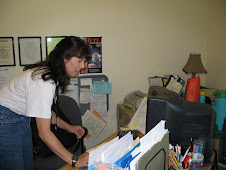
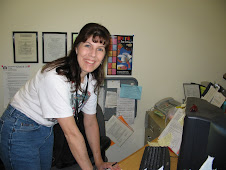


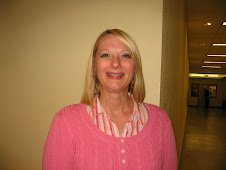




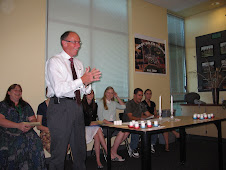
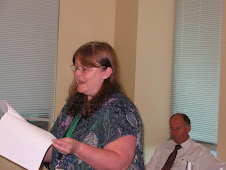
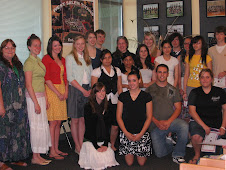
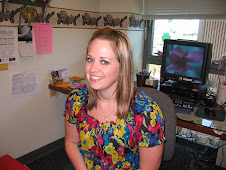

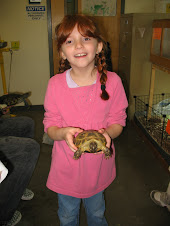

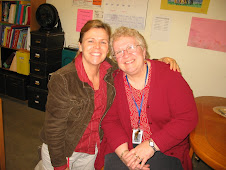




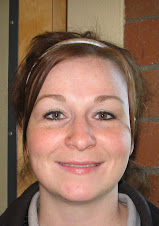








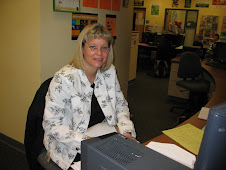



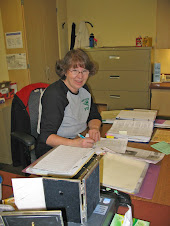



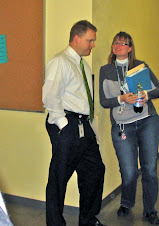

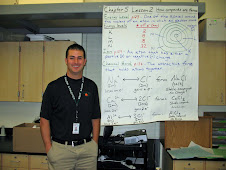

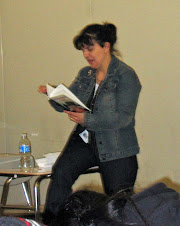
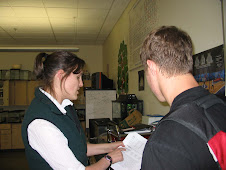

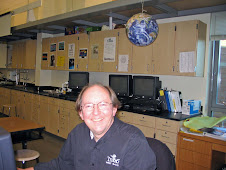
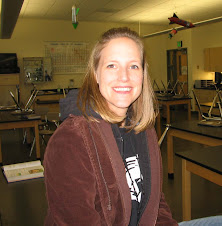
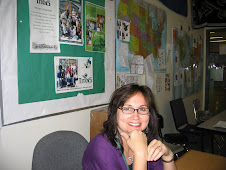
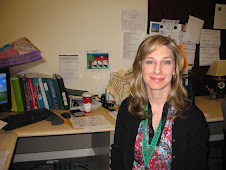
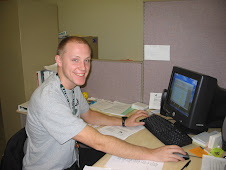
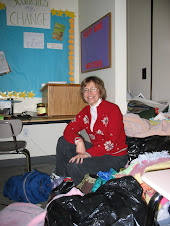


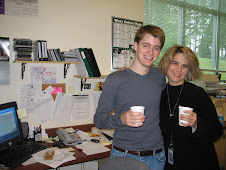

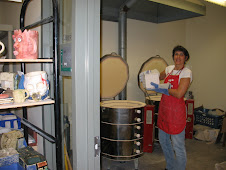
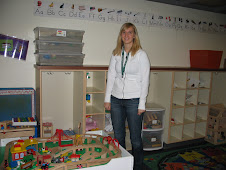
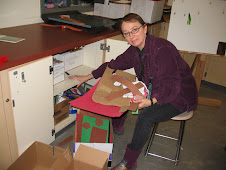
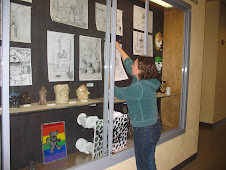
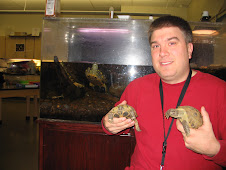
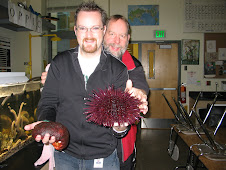
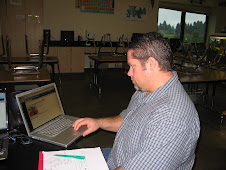
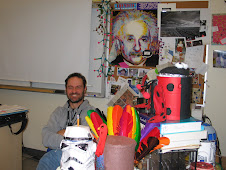
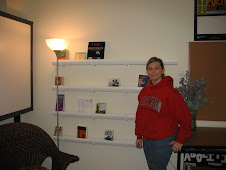
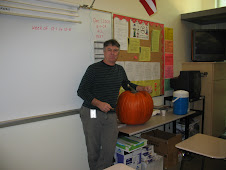
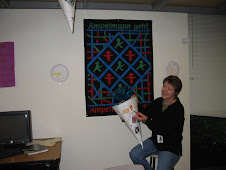
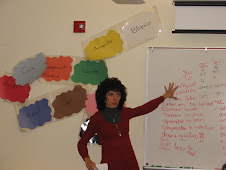
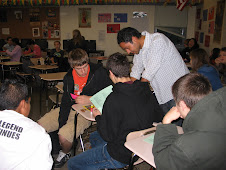
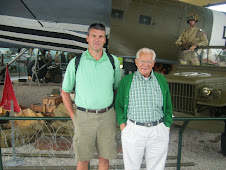
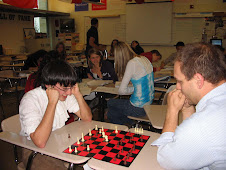

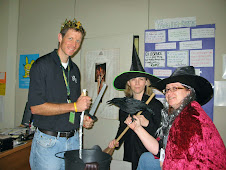

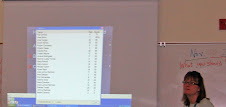
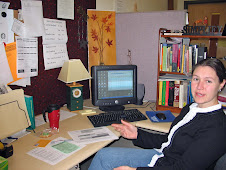



No comments:
Post a Comment